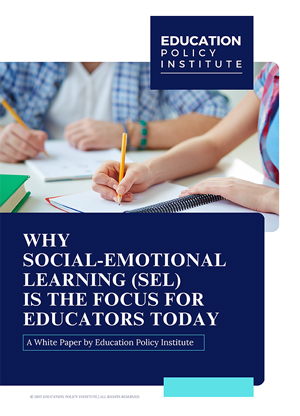Greater transformations in society happen when unexpected tasks or circumstances force vastly spread experimentation, to begin with the latest idea. The global experimentation with remote teaching has grown immensely in recent years and higher education is no exception.
The future of higher education is redefining its way, and globally many universities and colleges are preparing to dive into a brand new era of virtual education.
Ways about the Higher Education Transformation
In recent years, the technological revolution has been impacting higher education space tremendously. Several educators are passionately choosing these ways for the enhancement of their students learning journey.
-
Colleges and Universities are actively adopting the Hybrid educational model
Most higher education institutions function on a standard four-year education model for their students. However, they will have to think about which sections of this model can be substituted and which parts can be supplemented as well as complemented by the latest digital technologies.
For instance, most college-level lectures that need less personalization or human interaction can be quickly recorded as multimedia presentations that students can watch wherever and whenever they want. These commoditized sections of the curriculum can be easily delivered by an external instructor. For example, teaching Pythagoras’ theorem is quite similar globally everywhere. For such programs, technology platforms can offer the content to many students at a low cost without compromising on the perks of face-to-face interaction, since there is hardly any in these basic programs.
By freeing up resources from programs that can be presented externally, colleges will be able to commit more resources to research-related teaching and well-personalized problem-solving. Students will have many resources and opportunities to explore as well because they will not have to reside and study for four years at campuses.
Students can use the time spent on campus to finish the things that cannot be done remotely; such as electives, faculty office hours, more interactions, and career guidance. This hybrid educational model will save resources for colleges and students and can help make college education easily affordable for everyone
-
Better Collaboration between Universities & Organizations
According to Scott Galloway, a marketing professor at the NYU Stern School of Business, the recent technological innovations have given rise to big tech’s entry and to focus on the future of higher education. Colleges and universities are already seeking digital technologies that can be deployed at scale to enable all their students to have access to virtual learning platforms. And the tech companies are the best to offer these technologies.
Some of the successful collaborations between the tech organizations in the world are MIT and Google, Microsoft and Berkeley. These partnerships will give universities to expand enrolment with the help of hybrid online-offline degrees without compromising on their level of standards. As a result, students who have previously got into a second-tier college would be able to enter into a first-tier college, such as MIT. The outcome is that more students will get access to better education at a lower cost, creating a win-win situation for each one present.
-
More focus on Self-learning and Practical Implementation
One thing is clear not all faculty members prefer virtual classrooms. and there is a huge digital divide between those who have never taught online as well, and younger faculty who are adept in the latest technological enhancements. The same goes for the students too. Many students are not comfortable with online education. A huge part of higher education is the experience that students get on campus; to be able to socialize with their peer group and the sense of competition that motivates them to enhance their overall skills.
If universities are indeed going to partner with tech giants and apply best in state-of-the-art hybrid educational platforms, the mindsets of students and educators are required to be changed. Students are convinced that they will have enough time on campus to socialize and get a chance to experience college well. Similarly, teachers will also require to be sure that the online platforms are been used well to have a small learning curve and that they won’t have to spend more time learning than utilizing the virtual learning platforms.
To Conclude
The imagination of higher education is still uncertain, but exciting similarly. The global experiment with online education and remote teaching, and the perception of virtual learning has changed, and its essentiality has grown. As this experiment continues to unfold and new transformations take place, students, teachers, and colleges must be ready for a new future where the role of technology and remote learning is higher and also leads the way forward.
Latest
Trends blogs
- From Vision to Impact: Closing the Gender Gap in STEM Education
- Automation, Artificial Intelligence, and the Future of Human-Centered Education
- Mid-Career Education in a Changing Labor Market
- The Next Phase of STEM Education: The Role of Artificial Intelligence in Classroom Curricula
Focus blogs
- Research-Driven Education: Strengthening Strategies, Policies, and Classroom Practice
- Professional Certifications for Career Growth: What Students and Young Professionals Need to Know
- Building a High-Impact Center of Excellence: What You Need to Know
- Beyond Graduation: The Importance of Lifelong Learning in Higher Education





